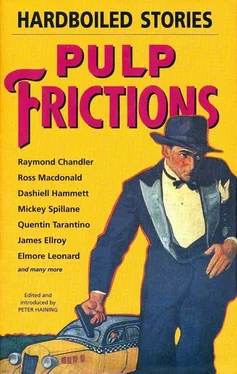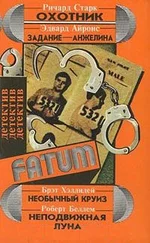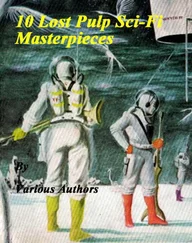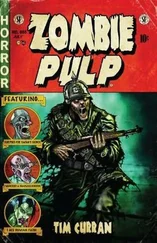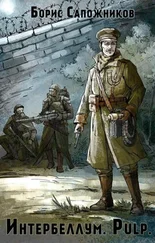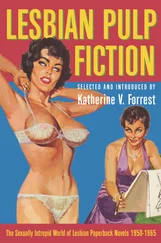He told us that the Coonses had come into his office on June second, looking for work; and had given Mrs Edward Comerford, 45 Woodmansee Terrace, Seattle, Washington, as reference. In reply to a letter — he always checked up the references of servants — Mrs Comerford had written that the Coonses had been in her employ for a number of years, and had been ‘extremely satisfactory in every respect.’ On June thirteenth, Thornburgh had telephoned the bureau, asking that a man and his wife be sent out to keep house for him, and Allis sent out two couples he had listed. Neither couple had been employed by Thornburgh, though Allis considered them more desirable than the Coonses, who were finally hired by Thornburgh.
All that would certainly seem to indicate that the Coonses hadn’t deliberately manoeuvred themselves into the place, unless they were the luckiest people in the world — and a detective can’t afford to believe in luck or coincidence, unless he has unquestionable proof of it.
At the office of the real-estate agents, through whom Thornburgh had bought the house — Newning & Weed — we were told that Thornburgh had come in on the eleventh of June, and had said that he had been told that the house was for sale, had looked it over, and wanted to know the price. The deal had been closed the next morning, and he had paid for the house with a cheque for $14,500 on the Seamen’s Bank of San Francisco. The house was already furnished.
After luncheon, McClump and I called on Howard Henderson — the man who had seen the fire while driving home from Wayton. He had an office in the Empire Building, with his name and the title Northern California Agent for Krispy Korn Krumbs on the door. He was a big, careless-looking man of forty-five or so, with the professionally jovial smile that belongs to the travelling salesman.
He had been in Wayton on business the day of the fire, he said, and had stayed there until rather late, going to dinner and afterwards playing pool with a grocer named Hammersmith — one of his customers. He had left Wayton in his machine, at about ten-thirty, and set out for Sacramento. At Tavender he had stopped at the garage for oil and gas, and to have one of his tyres blown up.
Just as he was about to leave the garage, the garage man had called his attention to a red glare in the sky, and had told him that it was probably from a fire somewhere along the old county road that paralleled the State Road into Sacramento; so Henderson had taken the county road, and had arrived at the burning house just in time to see Thornburgh try to fight his way through the flames.
It was too late to make any attempt to put out the fire, and the man upstairs was beyond saving by then — undoubtedly dead even before the roof collapsed; so Henderson had helped Coons revive his wife, and stayed there watching the fire until it had burned itself out. He had seen no one on that county road while driving to the fire...
‘What do you know about Henderson?’ I asked McClump, when we were on the street.
‘Came here, from somewhere in the East, I think, early in the summer to open that breakfast cereal agency. Lives at the Garden Hotel. Where do we go next?’
‘We get a car, and take a look at what’s left of the Thornburgh house.’
An enterprising incendiary couldn’t have found a lovelier spot in which to turn himself loose, if he looked the whole county over. Tree-topped hills hid it from the rest of the world, on three sides; while away from the fourth, an uninhabited plain rolled down to the river. The county road that passed the front gate was shunned by automobiles, so McClump said, in favour of the State Highway to the north.
Where the house had been was now a mound of blackened ruins. We poked around in the ashes for a few minutes — not that we expected to find anything, but because it’s the nature of man to poke around in ruins.
A garage in the rear, whose interior gave no evidence of recent occupation, had a badly scorched roof and front, but was otherwise undamaged. A shed behind it, sheltering an axe, a shovel, and various odds and ends of gardening tools, had escaped the fire altogether. The lawn in front of the house, and the garden behind the shed — about an acre in all — had been pretty thoroughly cut and trampled by wagon wheels, and the feet of the firemen and the spectators.
Having ruined our shoe-shines, McClump and I got back in our car and swung off in a circle around the place, calling at all the houses within a mile radius, and getting little besides jolts for our trouble.
The nearest house was that of Pringle, the man who had turned in the alarm; but he not only knew nothing about the dead man, he said he had never even seen him. In fact, only one of the neighbours had ever seen him: a Mrs Jabine, who lived about a mile to the south.
She had taken care of the key to the house while it was vacant; and a day or two before he bought it, Thornburgh had come to her house, enquiring about the vacant one. She had gone over there with him and shown him through it, and he had told her that he intended buying it, if the price, of which neither of them knew anything, wasn’t too high.
He had been alone, except for the chauffeur of the hired car in which he had come from Sacramento, and, save that he had no family, he had told her nothing about himself.
Hearing that he had moved in, she went over to call on him several days later — ‘just a neighbourly visit’ — but had been told by Mrs Coons that he was not at home. Most of the neighbours had talked to the Coonses, and had got the impression that Thornburgh did not care for visitors, so they had let him alone. The Coonses were described as ‘pleasant enough to talk to when you meet them’, but reflecting their employer’s desire not to make friends.
McClump summarised what the afternoon had taught us as we pointed our car towards Tavender: ‘Any of these folks could have touched off the place, but we got nothing to show that any of ’em even knew Thornburgh, let alone had a bone to pick with him.’
Tavender turned out to be a crossroads settlement of a general store and post office, a garage, a church, and six dwellings, about two miles from Thornburgh’s place. McClump knew the storekeeper and postmaster, a scrawny little man named Philo, who stuttered moistly.
‘I n-n-never s-saw Th-thomburgh,’ he said, ‘and I n-n-never had any m-mail for him. C-coons’ — it sounded like one of these things butterflies come out of — ‘used to c-come in once a week t-to order groceries — they d-didn’t have a phone. He used to walk in, and I’d s-send the stuff over in my c-c-car. Th-then I’d s-see him once in a while, waiting f-for the stage to S-s-sacramento.’
‘Who drove the stuff out to Thornburgh’s?’
‘M-m-my b-boy. Want to t-talk to him?’
The boy was a juvenile edition of the old man, but without the stutter. He had never seen Thornburgh on any of his visits, but his business had taken him only as far as the kitchen. He hadn’t noticed anything peculiar about the place.
‘Who’s the night man at the garage?’ I asked him.
‘Billy Luce. I think you can catch him there now. I saw him go in a few minutes ago.’
We crossed the road and found Luce.
‘Night before last — the night of the fire down the road — was there a man here talking to you when you first saw it?’
He turned his eyes upward in that vacant stare which people use to aid their memory.
‘Yes, I remember now! He was going to town, and I told him that if he took the county road instead of the State Road he’d see the fire on his way in.’
‘What kind of looking man was he?’
‘Middle-aged — a big man, but sort of slouchy. I think he had on a brown suit, baggy and wrinkled.’
Читать дальше
